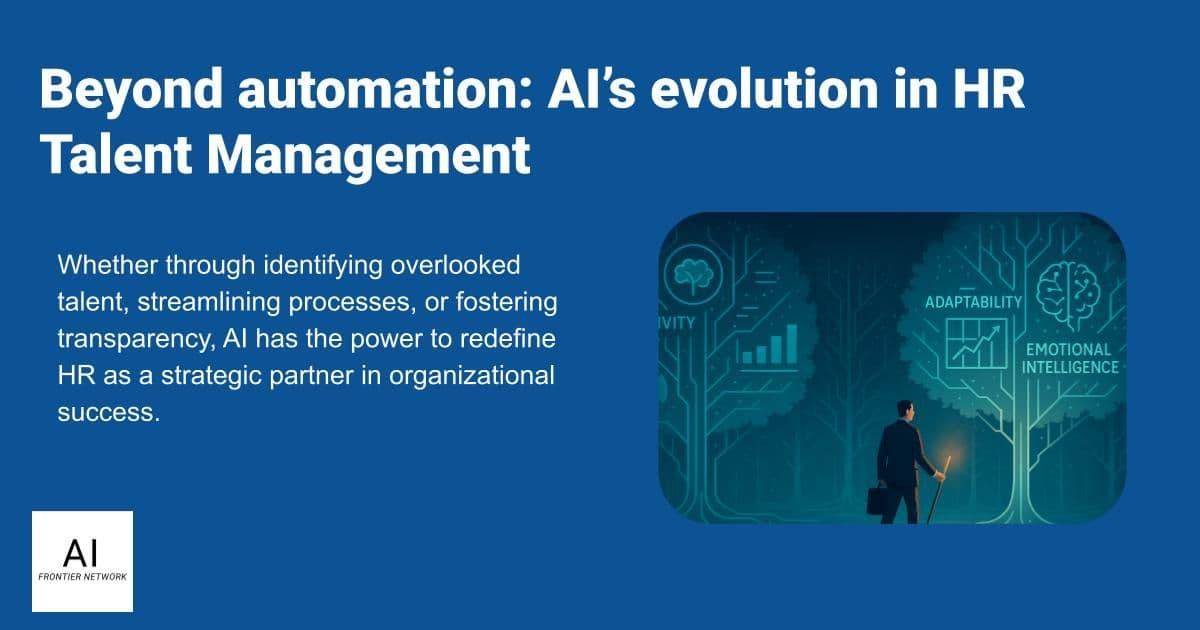The integration of artificial intelligence into human resources is reshaping the workplace, moving beyond automation to redefine how talent is identified, assessed, and nurtured. This transformation is not just about efficiency; it is about unlocking human potential through data-driven insights while preserving the empathy and context that only human judgment can provide. Drawing from the perspectives of twelve HR and AI experts, this article explores how AI is revolutionizing HR processes, the opportunities it presents, and the ethical considerations that must guide its adoption.
Redefining Talent Assessment
AI is shifting the paradigm of talent evaluation from static credentials to dynamic potential. Traditional resumes, often limited to job titles and tenure, are giving way to tools that uncover deeper insights into adaptability, learning agility, and emotional intelligence. Rajesh Sura highlights how platforms like Eightfold.ai, Pymetrics, and HireVue leverage behavioral data and machine learning to identify capability and fit at scale, enabling organizations to spot strengths that conventional methods might overlook. Paras Doshi emphasizes that AI surfaces hidden signals like adaptability and influence, allowing HR to hire for potential rather than pedigree. This shift, as Ram Kumar N. notes, enables HR to validate decisions transparently, focusing on qualities like creativity and emotional intelligence.
The move toward skills-based talent models further enhances this transformation. Shailja Gupta, through her work on GenAI-powered tools like Analytics Assist and Skills Graph, underscores how AI helps organizations prioritize growth potential over past performance. Dmytro Verner adds that AI systems can assess learning agility and skill development patterns, identifying candidates with both established expertise and future potential. This approach redefines talent discovery, aligning HR decisions with long-term organizational goals.
Augmenting Human Judgment
AI serves as a decision-support system rather than a decision-maker, a point echoed across expert perspectives. Sanjay Mood stresses that while AI can surface insights for hiring or promotions, human oversight is crucial to prevent bias and maintain context. Tools like large language models, as Rajesh Sura observes, quickly summarize interview notes or generate feedback insights, saving time and allowing HR professionals to focus on people-centric tasks. Flor Laorga notes that AI streamlines tasks like onboarding and sentiment analysis, but the human lens remains critical for assessing cultural fit and soft skills.
This augmentation extends to performance evaluations and promotions. Srinivas Chippagiri explains that AI can flag patterns in employee data, but managers must interpret these with empathy and context. Deepa Pahuja advocates for AI as an intelligent decision-support system, highlighting its role in surfacing relevant data points while preserving human judgment for evaluating interpersonal dynamics. By streamlining repetitive tasks, AI empowers HR teams to nurture potential, ensuring technology enhances the human element of HR.
Ethical Imperatives and Transparency
The adoption of AI in HR must be guided by fairness, transparency, and accountability. Noor Aftab warns that without careful oversight, biases in algorithms can reinforce inequalities. Rajarshi T. advocates for fairness-aware algorithms and continuous feedback loops to ensure decisions are auditable and inclusive. Shailja Gupta emphasizes embedding explainability into every step of AI processes to maintain trust. Regular audits and ethical design, as Deepa Pahuja notes, are essential to mitigate discrimination and ensure equity.
Training HR professionals in AI literacy is critical for fostering collaboration between humans and machines. Samarth Neeraw stresses the need for a framework that prioritizes augmented intelligence, ensuring ethical considerations remain at the forefront. This symbiotic ecosystem, as Srinivas Chippagiri highlights, ensures AI-driven decisions are not only informed but also equitable, scaling empathy rather than sacrificing it.
Streamlining Workflows, Enriching Roles
AI’s ability to automate large-scale tasks is transforming HR operations. Flor Laorga points to AI’s role in accelerating recruitment and streamlining administrative tasks. Dmytro Verner describes how AI-powered feedback tools generate summaries, enabling managers to deliver individualized follow-ups. Ram Kumar N. adds that sentiment analysis and explainable AI frameworks enable faster, more transparent validation of hiring and performance decisions. By reducing administrative burdens, these tools allow HR professionals to focus on strategic, people-focused work, such as fostering cultural alignment.
This shift enriches the role of HR, as Paras Doshi notes, making it more precise about what drives performance. As workflows become streamlined, HR leaders can dedicate more time to building inclusive cultures and supporting career development, creating a workplace where technology empowers human potential.
Challenges in Adoption
Despite its promise, AI adoption in HR faces challenges. Noor Aftab observes that many organizations possess the tools but struggle to adapt workflows to leverage AI’s capabilities. The rapid pace of technological change requires a cultural shift, with HR teams needing to embrace new ways of working. Rajarshi T. emphasizes the importance of continuous feedback loops to address these gaps, ensuring AI solutions remain inclusive and effective. The challenge, as Sanjay Mood underscores, lies in preparing HR to integrate AI responsibly while maintaining the human connection.
The Future of Work: A Human-Centered Approach
The future of HR lies in a human-centered approach where AI and human talent work in harmony. Samarth Neeraw envisions a symbiotic ecosystem where AI enhances human judgment, leading to more informed and equitable decisions. Whether through identifying overlooked talent, streamlining processes, or fostering transparency, AI has the power to redefine HR as a strategic partner in organizational success.
As the workplace evolves, responsible AI integration will be paramount. Organizations must prioritize ethical frameworks, invest in AI literacy, and maintain human oversight to ensure technology serves people. The result will be a future of work that is not only more efficient but also more empathetic and aligned with the true potential of every individual.














